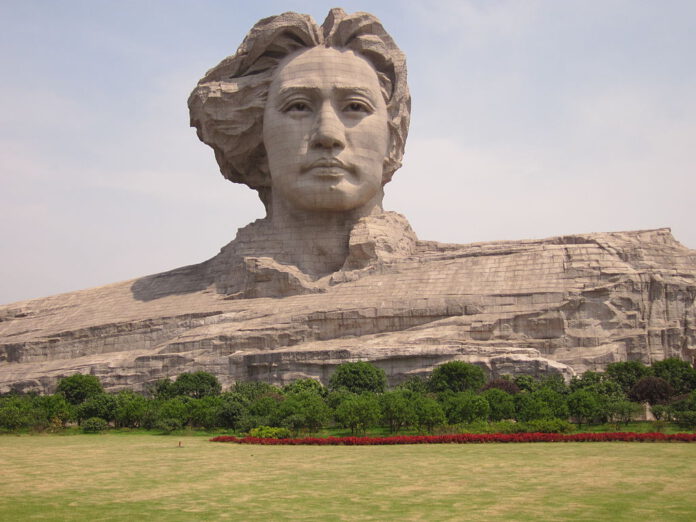
Mao Zedong’s historical thought underwent systematic development and gradually matured through decades of revolutionary struggle, intellectual reflection, and theoretical innovation. Its formation was deeply rooted in the historical context of China’s revolutionary and social conditions, shaped by both domestic imperatives and international Marxist theory. The early stages of Mao’s historical thought were driven by the practical demands of revolutionary struggle.
Following the Zunyi Conference, Mao assumed a leadership position within the Party Central Committee, enabling him to gain a broader perspective and coordinate revolutionary work with a systematic approach. He recognized that understanding China’s historical and social conditions, the nature of the Chinese revolution, and the laws governing social development was essential to avoid opportunist errors and ensure the success of revolutionary efforts. Mao consistently urged Party members to study not only Marxist theory but also Chinese history, learn from historical experience, and critically synthesize this knowledge through a Marxist lens.
The relatively stable environment in Yan’an provided Mao with the opportunity to study Marxist classics and historical materialism in depth, while also engaging with a growing community of Marxist historians. These exchanges enriched Mao’s understanding of universal social laws and informed his systematic study of Chinese history. By integrating historical materialism with the practical lessons of the Chinese revolution, Mao developed a sophisticated framework for analyzing society, class struggle, and historical development. His writings from this period, including “Problems of Strategy in China’s Revolutionary War,” “On Protracted War,” and lectures on dialectical materialism, combined theoretical rigor with concrete analysis of China’s social realities, providing innovative interpretations of the nature of Chinese society and the guiding principles of revolutionary struggle.
Mao’s focus on Party history during the Yan’an Rectification Movement further advanced his historical thought. Recognizing the need for the Party to critically study its own history, he emphasized that historical understanding must be closely linked to practical work. His reports, including “Reform Our Study” and “How to Study the History of the Communist Party of China,” articulated a clear methodology for historical research, grounded in the Marxist-Leninist standpoint, and aimed at unifying the Party’s understanding of its past experiences.
These studies culminated in the drafting of the “Resolution on Certain Historical Issues,” which systematically analyzed the Party’s historical trajectory, clarified ideological lines, and established the Party’s history as an independent field of scholarly study. Mao’s approach reshaped historical narratives, emphasizing the leadership of the Communist Party in modern China and providing the intellectual foundation for a new tradition of historiography.
As the New Democratic Revolution neared its victory in 1949, Mao further developed his historical thought to address the fundamental question of state power. In works such as “On the People’s Democratic Dictatorship,” he integrated Marxist theories of the state with the practical experience of the Chinese revolution, establishing the theoretical foundation for the political and state system of New China.
He analyzed the nature of Chinese society as semi-colonial and semi-feudal, identified the principal contradictions between imperialism and the Chinese nation and between feudalism and the masses, and clarified the tasks of national liberation and democratic revolution. Mao’s study of state theory and revolutionary practice produced the distinctively Chinese concept of the people’s democratic dictatorship, which combined democratic governance among the people with dictatorship over reactionary forces, reflecting a dialectical unity of democracy and dictatorship.
Mao Zedong’s achievements in historical thought during the Yan’an and Xibaipo periods also included the enrichment of Marxist methodology. He applied historical materialism to understand class relations, productive forces, production relations, and the role of the state, emphasizing that historical research must employ a comprehensive, comparative approach across temporal and spatial contexts. Mao developed analytical frameworks such as the “four-sided attack” method, systematically examining politics, economy, culture, and military affairs to gain a holistic understanding of historical processes. Through these efforts, he laid a scientific foundation for Party history research, identifying historical laws and offering guidance for future revolutionary and state-building activities.
After the founding of the People’s Republic of China, Mao’s historical thought entered a new stage of development, enriched by his engagement with international and domestic socialist experience. He articulated the theory of basic social contradictions, synthesizing the relationship between productive forces and production relations with the interaction between the economic base and superstructure, and clarified the driving forces of social development under both pre-socialist and socialist conditions.
He also proposed the theory of two types of social contradictions, distinguishing antagonistic contradictions between enemies from non-antagonistic contradictions among the people, offering systematic guidance for political and social management in socialist society. Mao further refined the theory of class struggle, recognizing both the progressive and reactionary roles of historical classes, and emphasized the decisive role of the masses as creators of history, codifying the mass line as a method to apply the principle of popular historical agency in practice.
Mao Zedong’s historical thought has enduring significance for the leadership of historical research and the development of historiography with Chinese characteristics. It provided the theoretical basis for dismantling idealist and class-biased interpretations of history, promoting historical materialism as the guiding methodology, and encouraging rigorous, evidence-based historical scholarship.
Mao’s work established a systematic framework for analyzing historical phenomena, constructing historical concepts, and evaluating the past through the lens of Marxist methodology. It also serves as a powerful theoretical tool against historical nihilism, providing critical guidance for interpreting modern and contemporary history and defending an objective and scientific understanding of China’s revolutionary and social development.
Source: marxists internet archive, idcpc, jacobin



